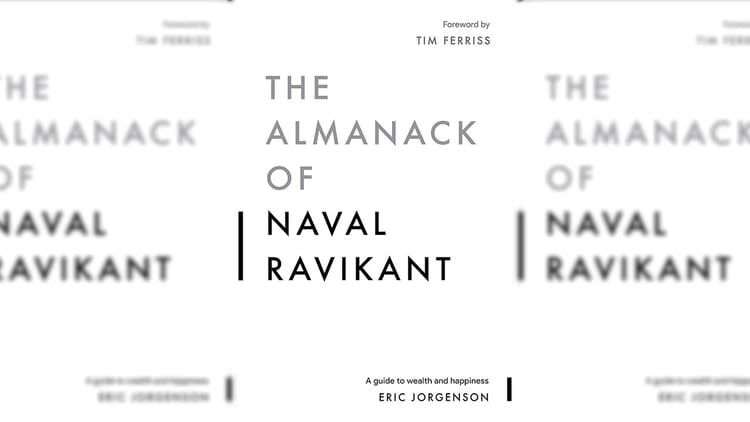📚 The Richest Man In Babylon by George S. Clason

🎯 Read This Book If
You want to learn timeless lessons of personal finance while going on an adventure back in time.
🔑 Key Points
- Pay yourself first – take 10% of your earnings and set them aside for your future self.
- Grow your wealth – invest in a way that grows your money while protecting it from great loss.
- Avoid other's mistakes – lean on the expertise of others to avoid mistakes and make what you have count.
🤔 Main Ideas
Babylon became the wealthiest city of the ancient world because its citizens were the richest people of their time. They appreciated the value of money. They practiced sound financial principles in acquiring money, keeping money and making their money earn more money. They provided for themselves what we all desire . . . incomes for the future.
The Man Who Desired Gold
Wealth often alludes us because, even though we desire it, we don't take the necessary steps to achieve it.
Throughout our lives, we have all accomplished a lot. Whether it's a big things or small things, we were able to accomplish what we have because we took the right steps and put in the right effort. We didn't just desire to graduate high school, get our dream job, or learn a new skill, we took action to make it happen.
"Thou makest me to realize the reason why we have never found any measure of wealth. We never sought it."
The Richest Man in Babylon
The road to wealth is easy to find once you decide that a part of all you earn is yours to keep. The idea of paying yourself first. Wealth requires you to learn how to acquire money, how to keep it, and how to use it.
Grow your wealth by learning three lessons:
- Live on less than you earn.
- Seek advice from those competent to give it.
- Make gold work for you.
"Wealth, like a tree, grows from a tiny seed. The first copper you save is the seed from which your tree of wealth shall grow. The sooner you plant that seed the sooner shall the tree grow. And the more faithfully you nourish and water that tree with consistent savings, the sooner may you bask in the contentment beneath its shade."
Seven Cures for a Lean Purse
Everyone can learn how to accumulate gold and become rich and prosperous. No one can build wealth without first mastering each step.
- Start thy purse to fattening
For each ten coins I put in, to spend but nine. - Control thy expenditures
Budget thy expenses that thou mayest have coins to pay for thy necessities, to pay for thy enjoyments and to gratify thy worthwhile desires without spending more than nine-tenths of thy earnings. - Make thy gold multiply
To put each coin to labouring that it may reproduce its kind even as the flocks of the field and help bring to thee income, a stream of wealth that shall flow constantly into thy purse. - Guard thy treasures from loss
Guard thy treasure from loss by investing only where thy principal is safe, where it may be reclaimed if desirable, and where though will not fail to collect a fair rental. Secure the advice of those experienced in the profitable handling of gold. - Make of thy dwelling a profitable investment
Own thy own home. - Insure a future income
Provide in advance for the needs of thy growing age and the protection of thy family. - Increase thy ability to earn
Cultivate thy own powers, to study and become wiser, to become more skillful, to so act as to respect thyself.
Meet the Goddess of Good Luck
Luck isn't something that we stumble upon, luck is created. Good luck waits to come to those who accept opportunity.
In order to attract good luck, it is necessary to out yourself in a position to take advantage of an opportunity when it arises. Taking action will lead to the success you desire.
"Men of action are favoured by the Goddess of Good Luck."
The Five Laws of Gold
Building wealth is a slight burden upon the thoughtful person. Bearing the burden consistently year after year, is what's required to accomplish the final purpose.
- Gold cometh gladly and in increasing quantity to anyone who will put by not less than 1/10 of their earnings to create an estate for their future and that of their family.
- Gold labours diligently and contentedly for the wise owner who finds for it profitable employment, multiplying even as the flocks of the field.
- Gold clings to the protection of the cautious owner who invests it under the advice of people wise in its handling.
- Gold slips away from those who invest it in businesses or purposes with which they are not familiar or which are not approved by those skilled in its keep.
- Gold flees the person who would force it to impossible earnings or who follows the alluring advice of tricksters and schemers or who trusts it to his own inexperience and romantic desires in investment.
"Wealth that comes quickly goeth the same way."
The Gold Lender of Babylon
Lending money is easy, what's difficult is getting it back when it's lent unwisely. When wanting to help a friend to family, do so in a way that doesn't bring their burdens onto yourself.
Don't be swayed by fantastical plans of impractical men to force unusually large earnings from your money. If it's too good to be true, it likely is.
"Better a little caution than a great regret."
The Walls of Babylon
5,000 years ago, the great walls of Babylon protected the city, it's citizens and their riches from their enemies. The wall around the city was the only protection against the unexpected.
Today, protection from the unexpected comes in the form of: insurance, savings accounts, emergency funds and dependable investments. Don't overlook protection when planning for the future.
"We cannot afford to be without adequate protection."
The Camel Trader of Babylon
Each of us, has everything that we need to be anything that we want to be. The path isn't always obvious, it's something that we have to discover for ourselves and work consistently towards.
That discovery comes from determination, from wanting something badly enough to pursue it no matter what. Determination can lead people out of difficulties and into the success they seek.
"Where the determination is, the way can be found."
The Clay Tablets from Babylon
We believe that there is fun in spending, but the real fun comes from accumulating money that you do not want to spend. Following a financial plan, even a very simple financial plan, can be the difference between staying where you are, and ending up where you want to be.
A very simple formula of your income could be:
- 70% – Base your lifestyle on this.
- 20% – Pay off your debts and save.
- 10% – Invest this for your future.
The Luckiest Man in Babylon
Hard work is your best friend when it comes to building wealth. If building wealth were easy, we'd all be rich, but that's far from the reality we live in.
Hard work should be enjoyed, it should be meaningful and purposeful. It can allow you to make more money. It can help you be better prepared when opportunity comes along. It can teach you the value of something. It can let others see the value in you. It can align your priorities and value to what's really important.
With enough time, hard work can take anyone anywhere. From the outside it might look like luck. But when you work hard to achieve what you really want, you know it was anything but luck.
🧠 Final Thoughts
The Richest Man in Babylon is a short but full book of timeless lessons about personal finance. Based in an ancient city from 5,000 years ago and written in 1926, the lessons are just as relevant today as they were back then, and as they'll continue to be in the future.
If you're looking for a first finance book, or looking to reinforce your financial knowledge with a book of powerful stories, The Richest Man in Babylon might be exactly what you're looking for.
❤️ Liked This? Check These Out
I Will Teach You To Be Rich by Remit Sethi
Rich Dad Poor Dad by Robert T. Kiyosaki
Think and Grow Rich by Napoleon Hill
All ideas, quotes, and illustrations are borrowed or based on The Richest Man In Babylon by George S. Clason.






Member discussion